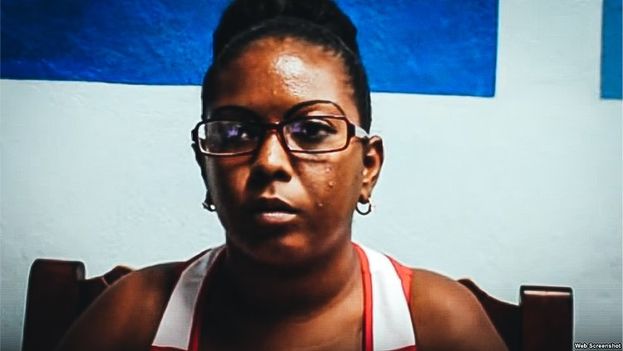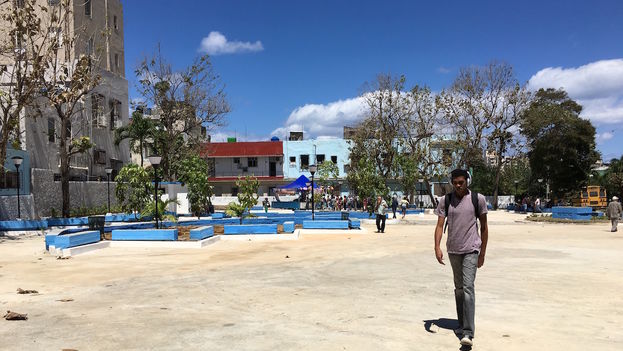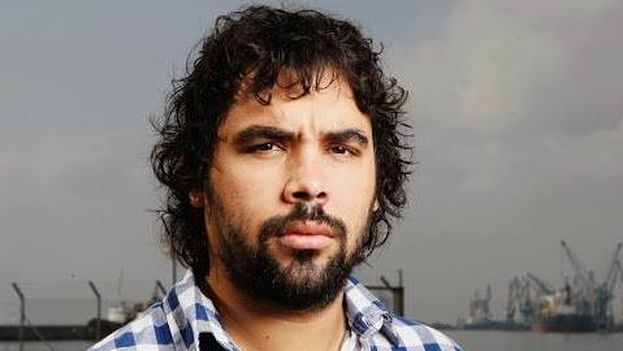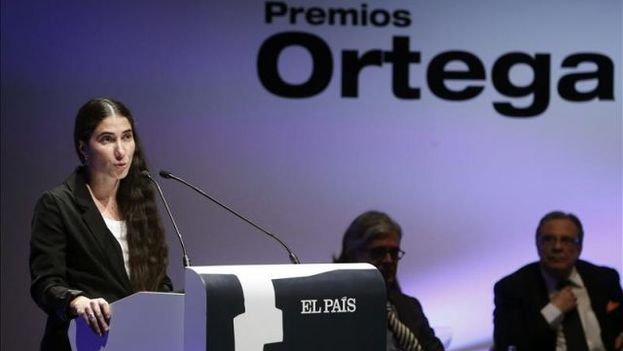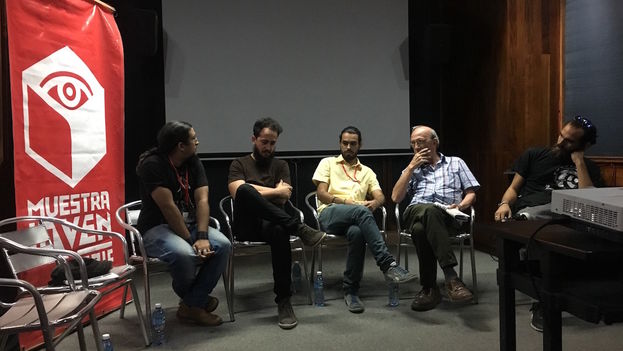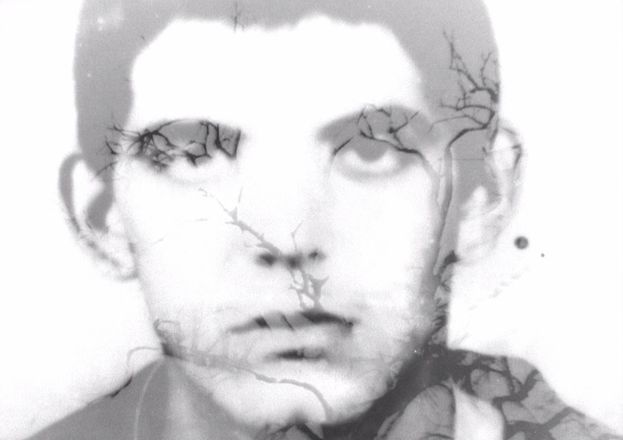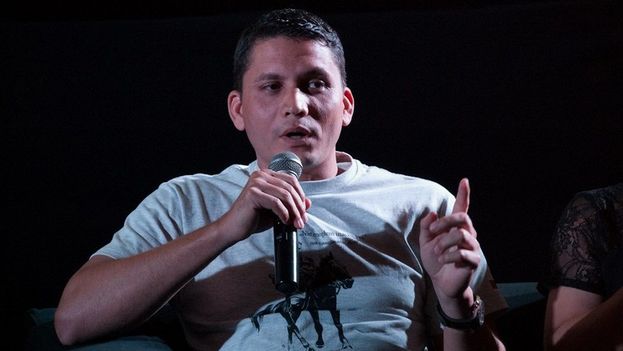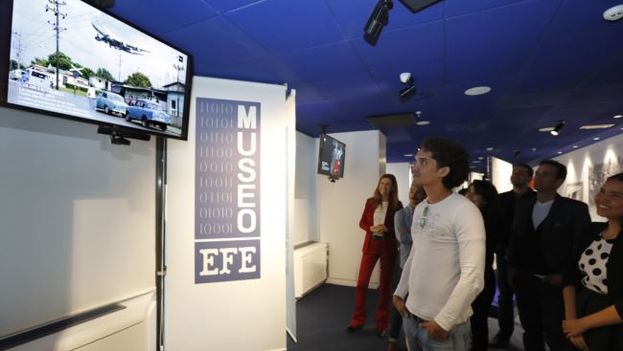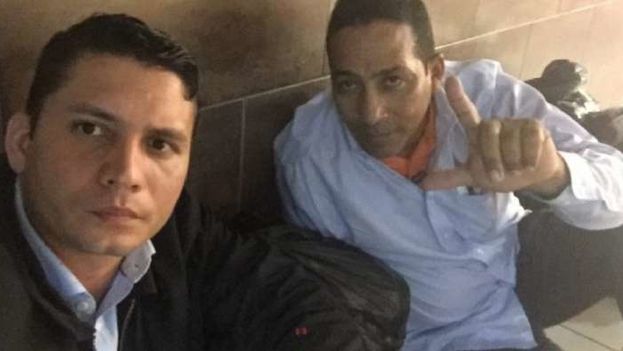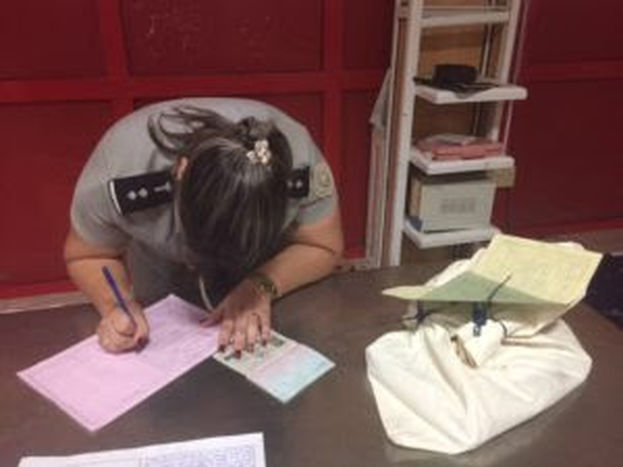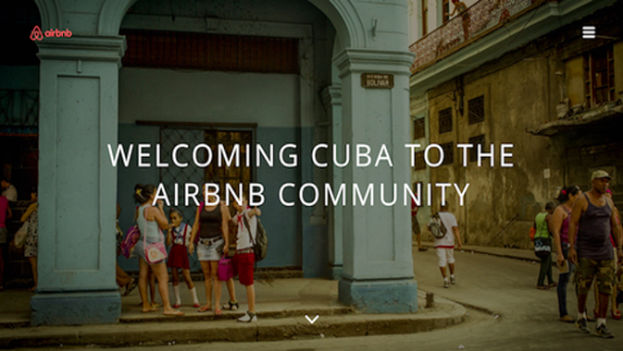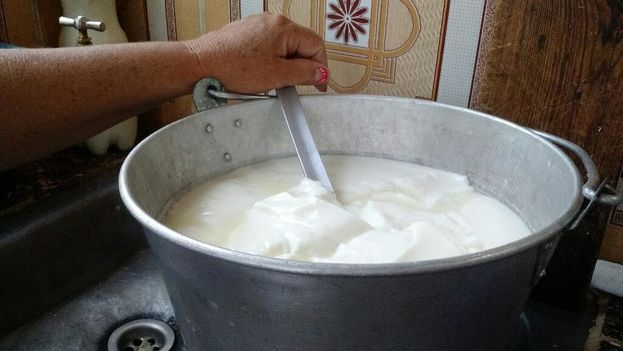
![]() 14ymedio, Bertha Guillen, Candelaria, 11 April 2017 — The milk boils on the rustic stove while on the table the cream is churned to make butter. The whole family revolves around the modest production of artisan cheese, a product targeted by the police and appealing to customers.
14ymedio, Bertha Guillen, Candelaria, 11 April 2017 — The milk boils on the rustic stove while on the table the cream is churned to make butter. The whole family revolves around the modest production of artisan cheese, a product targeted by the police and appealing to customers.
Roberto leaves the house every day very early and stands for hours at the edge of the national highway, displaying one or two cheeses to all passing travelers. He hides the rest of the merchandise in the grass to avoid large quantities of that soft and fresh food that they make at home being confiscated.
The patrols that monitor the area are mainly focused on trafficking in shrimp, fish, cheese and beef. From time to time a passenger bus is stopped in the middle of the road and the troops proceed to check each passenger’s luggage. The police are well able to detect that particular smell that emanates from dairy products. continue reading
“I get up at three in the morning for the milking in the dairy,” says Senén, Roberto’s father and a resident of Artemisa province. “When we have the milk that fulfills what we have to give to comply with the state plan, then my wife makes the cheese with what remains.”
Each farmer is obliged to sell most of their meat and milk production to companies and state centers
Each farmer is obliged to sell most of their meat and milk production to companies and state centers. In 2015 the price paid to the farmers for this fresh milk rose from 2.40 Cuban pesos (CUP) per liter to 4.50, less than half of the 10 CUPs (about 40 cents US) that it sells for in the informal market.
Private producers are prohibited from selling milk or any dairy product they produce to other private individuals on their own. However, many homes and private restaurants throughout the island are nourished by this artisanal food, made and transported under absolute discretion.
“My family has been making cheese for years,” Senén explains at midday. They started making it during the Special Period when all the clandestine pizzas were made with the so-called guajiro cheese. Now some private restaurants buy pieces of gouda or Parmesan in state stores or on the black market, but artisanal production remains the most affordable for domestic customers.
A few miles from the house of Roberto and Senén, in the dairies of Cayajabos, Olga begins to cut the milk with a serum made from pork lungs and lemon. This technique ensures a consistent and good tasting cheese. She adds some boiling water “to kill the bacteria” and to achieve a firm, “gummy” texture.
Cuba is experiencing the worst drought of the last half century and the country’s reservoirs are below 39% of their capacity
Today Olga wants to make a piece of about two pounds with ten liters of milk. “At the moment we are making few cheeses because the cows are giving very little milk and we have to fulfill the plan,” she says while straining the fermented milk and recycling the serum to use it again.
Cuba is experiencing the worst drought of the last half century and the country’s reservoirs are below 39% of their capacity. More than 81% of the agricultural area is affected by low water levels in irrigation and the effect on livestock production is especially negative.
Rain is not the only problem. Along with the 120 liters of water a day a cow drinks, it also consumes 10% of its weight in pasture grass, fodder and food concentrate, according to experts consulted by this newspaper.
Grasslands are currently dry and the feed supply is unstable. Farmers juggle feeding their cows with mixtures that also include derivatives from the sugar industry. The deficit directly influences the amount of meat and milk that is produced.
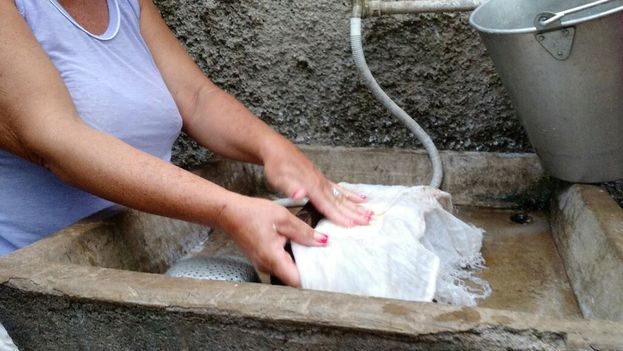
According to Rogelio González, a farmer from Cayajabos, 30 years ago a dairy was capable of producing up to 2,160 liters of milk daily, while now among the 10 dairy farms in the area, they barely reach the 1,080 liters needed to comply with the state plan.
“We had here the trays loaded with feed and purge honey, there were areas of fodder, urea, salt and the milking system was mechanized, all this helped to a improve production,” evokes Gonzalez. “But then everything got destroyed, the grazing fields are surrounded by the invasive marabou weed and the milking systems are pitiful.”
During the years of the Soviet subsidy, Cuba managed to produce up to 200 types of cheese, but the fall of the Socialist Camp ruined production and paralyzed the most important industries in the sector. The authorities are trying to revitalize some of the dairy processing plants, but without foreign investment the project becomes very difficult.
While state production tries to pick up the pace, Senén continues to make progress in artisanal cheese production. All around are small wooden molds made with bits of planks of different sizes to give shape to the cheese. The press that extracts the liquid is used before the work of turning.
Under the structure, a white bucket collects the liquid that is draining. “This is to feed the piglet I have back there,” adds the dairy farmer. “You have to take advantage of everything.”
When the process of pressing is finished “you have to refrigerate the cheese for a few hours so the crown has a nice yellow color and a better texture,” according to Senén.
“Right now, we are making only two kinds of cheese, not only because of the lack of milk but also because there’s not a great cheese culture here, so they eat the artisanal cheeses and the so-called processed cheese, which is sold in the little market for Cuban pesos, and in the store there is only gouda and it’s very expensive,” he says. A pound of the latter cost between 9 and 10 times more than the product made by Senén and his family.
Among the handcrafted products is the so-called guajiro cheese, which is sold on the highway
Among the handcrafted products is the so-called guajiro cheese, which is sold on the highway. Normally it is made from skimmed milk boiled and cut with piña de ratón, a wild seed. The result is a product that is white and more grainy.
To supply the private restaurants specializing in Italian food the process becomes longer and complex, in order to cure the cheese better. There are customers who prefer it with salt and others without salt, details the farmer. It should be avoided at all costs that the milk gets smoky during the cooking.
“We have to take the risk of selling it in Havana, because there they pay better.” A pound trades in the informal networks for between 25 and 35 CUP depending on the curing of the product. “We are making contacts and fixed points where they buy from us,” says Roberto, who fears fines and arrests on the highway.
“Every day the police get more strict and if they catch me, they remove the merchandise and take me to the station”, says the young man. More than once he has had to run and abandon the product. “It’s hard work, sometimes I only sell a little and most of the time is in the sun.” For him, the best days are those when some foreigner arrives.
For travelers passing by in their tourist cars the scene always looks nice and with an air of tradition: a man on the side of the road holds a cheese in his hands, as a trophy, while ensuring that it is “home-made.” Few realize the difficulties associated with trying to sell this delicious food in Cuba.


